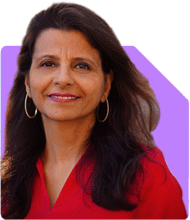Vivek Lala |233 Answers |Ask -Follow
Tax, MF Expert - Answered on May 02, 2024
Lala cleared his chartered accountancy exam in 2018 and completed his articleship with Chaturvedi and Shah. ... more

I'm 27 with monthly in-hand salary Rs.37,000 with an expenditure of Rs.15000 for family I'm confused on how to secure my future financially. Could you please suggest some mutual funds with low risk and high gains I can invest in or any other better investment options
As far as investment risk and returns go , no high return investment is low risk , risk is a point of view which differs from person to person, It is always a good idea to consult with a financial advisor in person.
Suggestion of funds :
small cap 30%
mid cap 30%
multi cap 30%
large and mid 10%
You may like to see similar questions and answers below
Ramalingam Kalirajan |2770 Answers |Ask -Follow
Mutual Funds, Financial Planning Expert - Answered on May 09, 2024
Ramalingam Kalirajan |2770 Answers |Ask -Follow
Mutual Funds, Financial Planning Expert - Answered on Apr 02, 2024
Ramalingam Kalirajan |2770 Answers |Ask -Follow
Mutual Funds, Financial Planning Expert - Answered on Apr 16, 2024
Ramalingam Kalirajan |2770 Answers |Ask -Follow
Mutual Funds, Financial Planning Expert - Answered on May 14, 2024
Ramalingam Kalirajan |2770 Answers |Ask -Follow
Mutual Funds, Financial Planning Expert - Answered on May 20, 2024
Komal Jethmalani |312 Answers |Ask -Follow
Dietician, Diabetes Expert - Answered on May 20, 2024
Patrick Dsouza |276 Answers |Ask -Follow
CAT, XAT, CMAT, CET Expert - Answered on May 20, 2024
Patrick Dsouza |276 Answers |Ask -Follow
CAT, XAT, CMAT, CET Expert - Answered on May 20, 2024
Patrick Dsouza |276 Answers |Ask -Follow
CAT, XAT, CMAT, CET Expert - Answered on May 20, 2024
Patrick Dsouza |276 Answers |Ask -Follow
CAT, XAT, CMAT, CET Expert - Answered on May 20, 2024
Patrick Dsouza |276 Answers |Ask -Follow
CAT, XAT, CMAT, CET Expert - Answered on May 20, 2024
Patrick Dsouza |276 Answers |Ask -Follow
CAT, XAT, CMAT, CET Expert - Answered on May 20, 2024
Komal Jethmalani |312 Answers |Ask -Follow
Dietician, Diabetes Expert - Answered on May 20, 2024
Komal Jethmalani |312 Answers |Ask -Follow
Dietician, Diabetes Expert - Answered on May 20, 2024
Komal Jethmalani |312 Answers |Ask -Follow
Dietician, Diabetes Expert - Answered on May 20, 2024






















